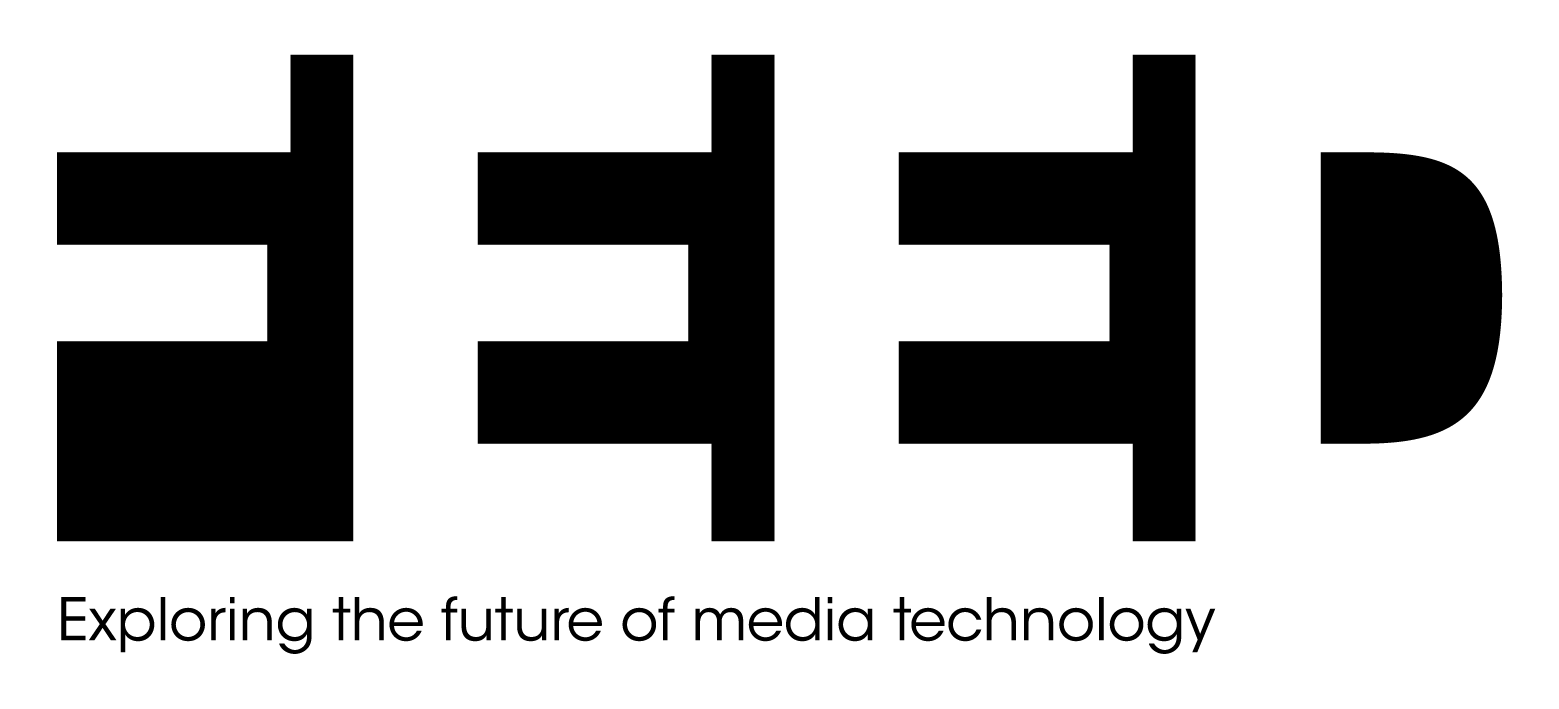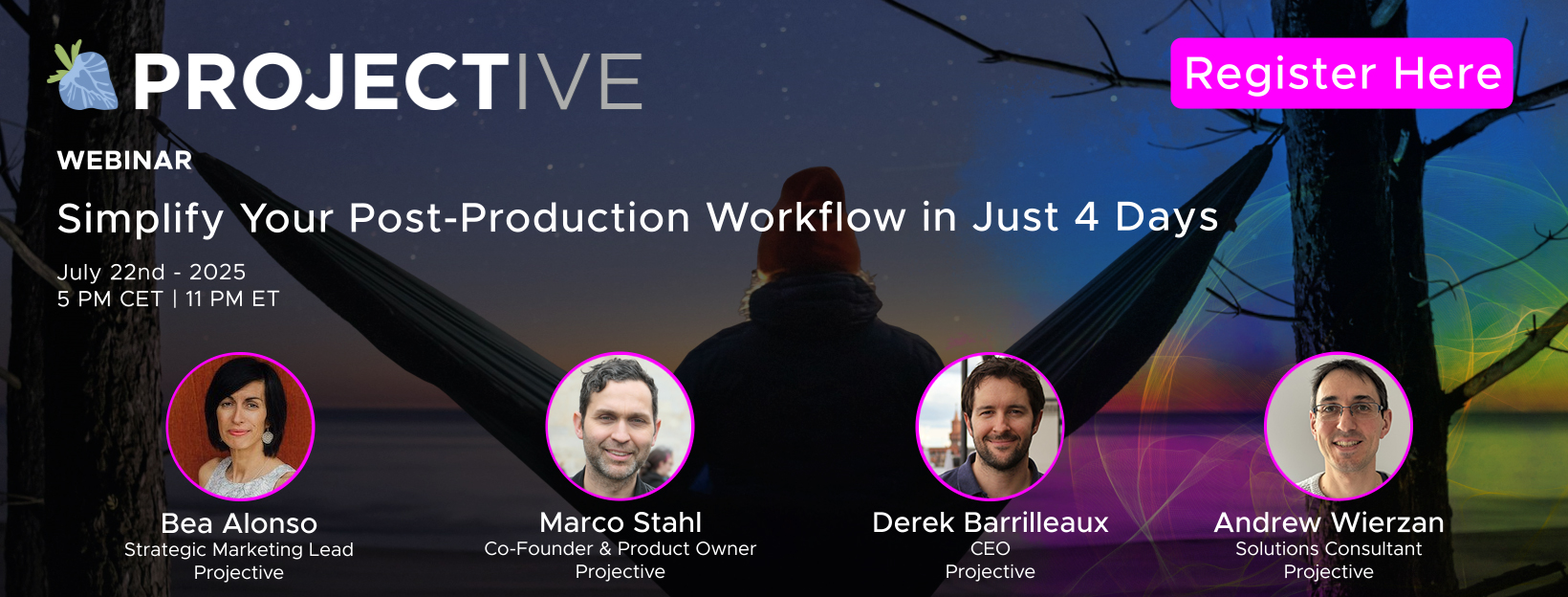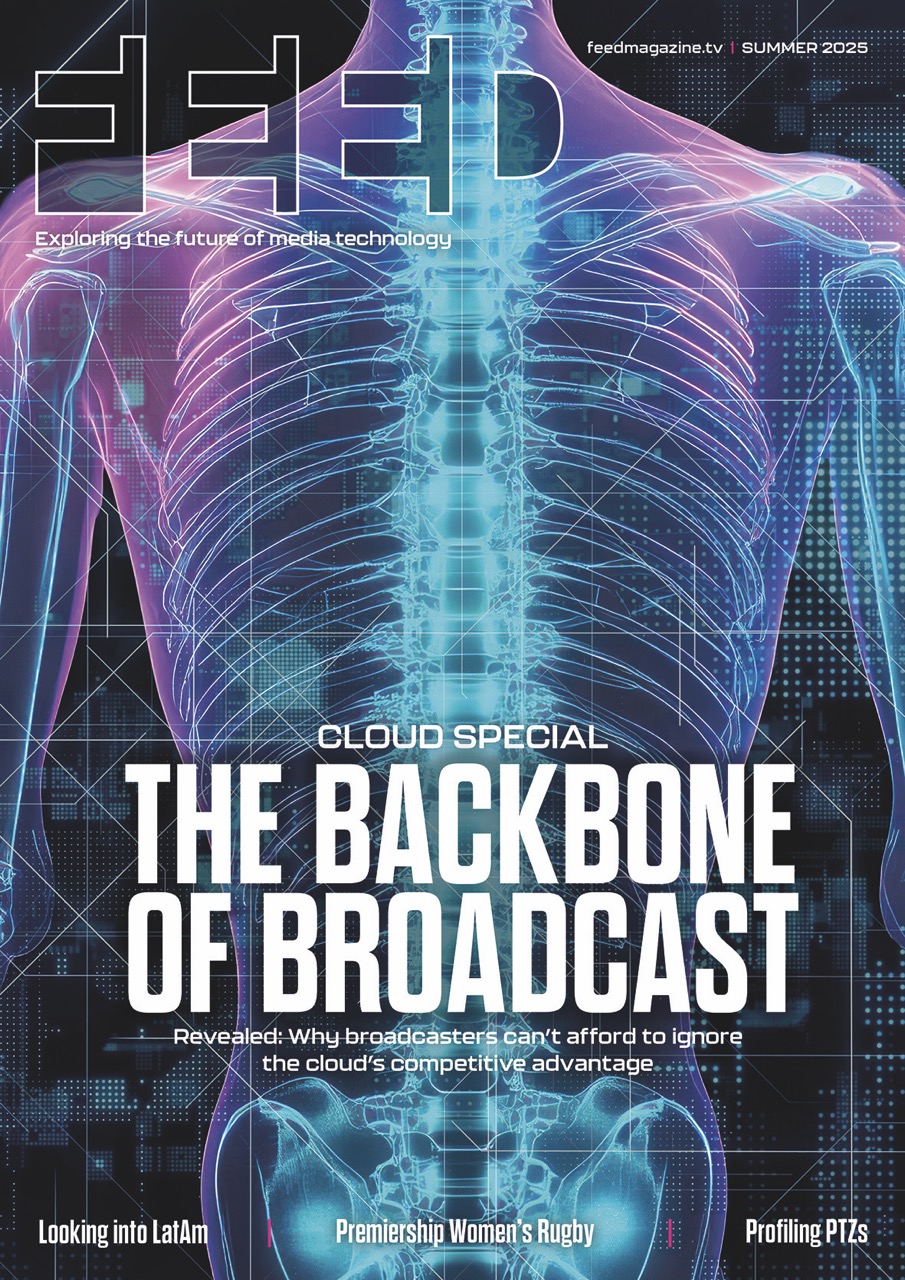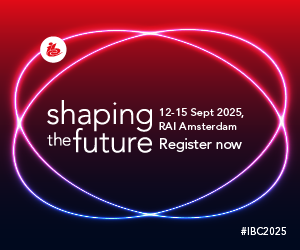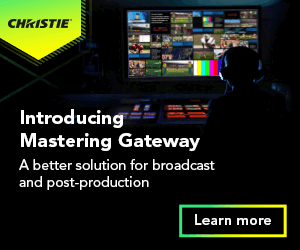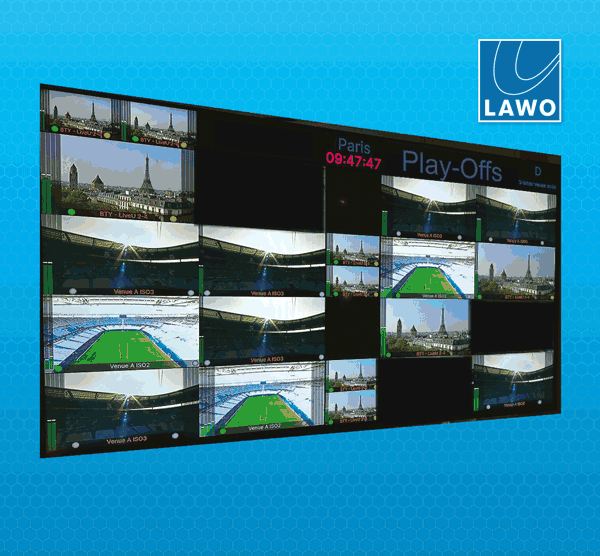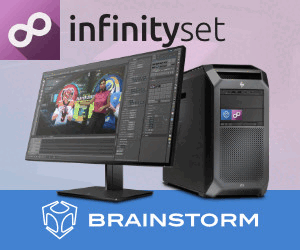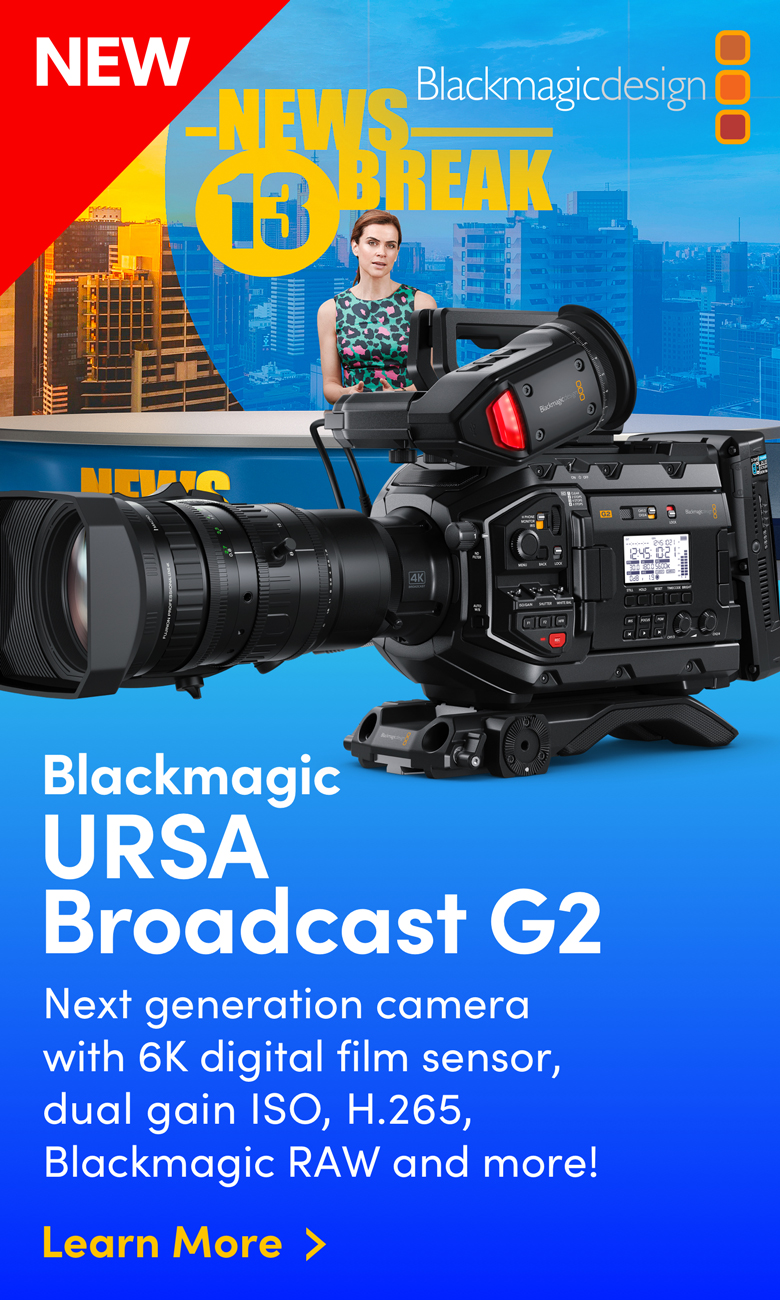Camilla Young, Vualto: “No one’s watching proper telly”
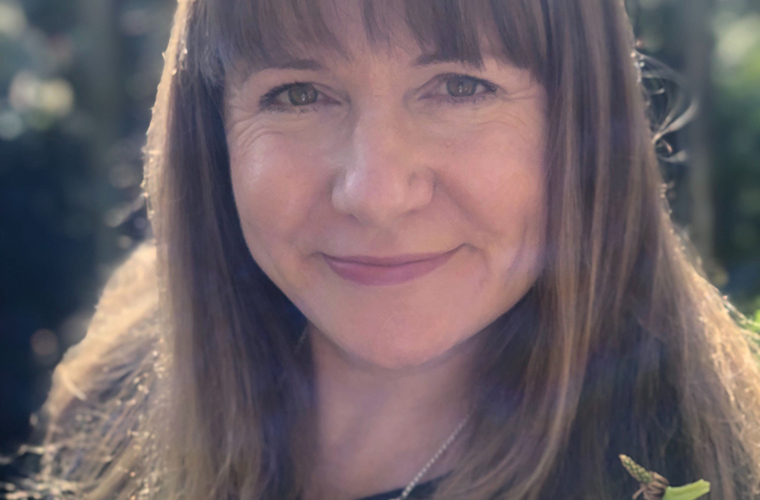
OTT delivery and orchestration company, Vualto, provides video on-demand services for big broadcasters and big government. FEED talks to company co-founder and CEO Camilla Young about the history of streaming, developments in VOD and getting more girls into IT
FEED: Can we start from the beginning? What was your background before you started Vualto?
Camilla Young: I started as a software developer in the late 1980s for Colman’s of Norwich, a food manufacturer, after I had done a computer science A level. When I was younger, I wasn’t able to study computing – it was 1984, the ZX Spectrum had just come out, and the computer club at school was all boys, but I was quite interested in it and had my own computer. So I did the computing A level and went on to do an HND (Higher National Diploma) in computer science, and did pretty well.
I was at Colman’s for five years, coding in various languages and writing all sorts of things, like manufacturing systems for measuring the flow of liquid through a pipe. It was quite varied and gave me a really good grounding. Back then, there were 50 people in the IT department and half of them were women – at the time, that didn’t seem unusual.
FEED: We spoke to someone recently who pointed out that gender equality was actually more common in the earlier days of computer programming.
Camilla Young: Absolutely. I think gaming has got a lot to do with that. You get boys who get really interested in computer games and spend all their time playing Call of Duty or FIFA, and that’s how girls see computing. And then it’s girls who get sucked into the social media.
“We’ve got these systems suitable for broadcasters, but parliaments and governments are just the same. They’re broadcasters in their own right”
One day at Colman’s, like a lot of manufacturing companies in the late 1980s, they brought in Oracle, and a load of Oracle consultants. There was this very flash guy in a gold Porsche that used to come in, and he said to me, “What are you doing in Norwich? You need to get to London and get out there”. So that’s what I did.
I got a job in Bracknell – the UK’s Silicon Valley at the time – managing sales promotional information for retailers and supermarkets. It was all to do with multidimensional databases. It was the early days of OLAP – it’s a way of slicing and dicing data. After that, I went to work for a management consultancy in London.
After a few years in London, my husband and I moved to Cornwall. There isn’t a lot of tech in Cornwall, but I found a job in Totnes as a software delivery manager, looking after bespoke software projects. They wanted somebody with a bit of London, someone to give their teams a kick.
“We’ve grown our business through partners – we sell their product and they sell our services”
In 2006 I went to work for Twofour Digital, an independent TV company (now owned by ITV). They had a big facility in Plymouth, where I learned video streaming.
FEED: What did you do at Twofour?
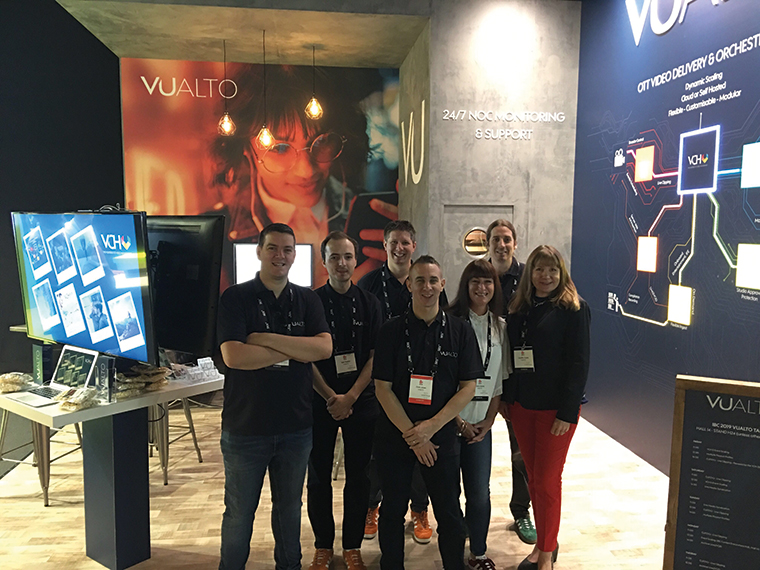
All over the world: Vualto landed its first contract with French television, and continues to attract mainland European clients
Camilla Young: My first job was to manage the streaming of European Parliament TV, Europol TV, which was a big VOD TV system for the European Parliament. At first there was only one developer and me. But by the time I’d left, they had a team of about 25.
It was the real beginning of the streaming times. We were also doing streaming for HBO in central Europe. We put in all the encoding and the infrastructure to do the first radio streaming from the BBC, which was a big project, and was a precursor to the BBC’s iPlayer.
FEED: What was that like? You didn’t have a long history of streaming tech to draw on back then.
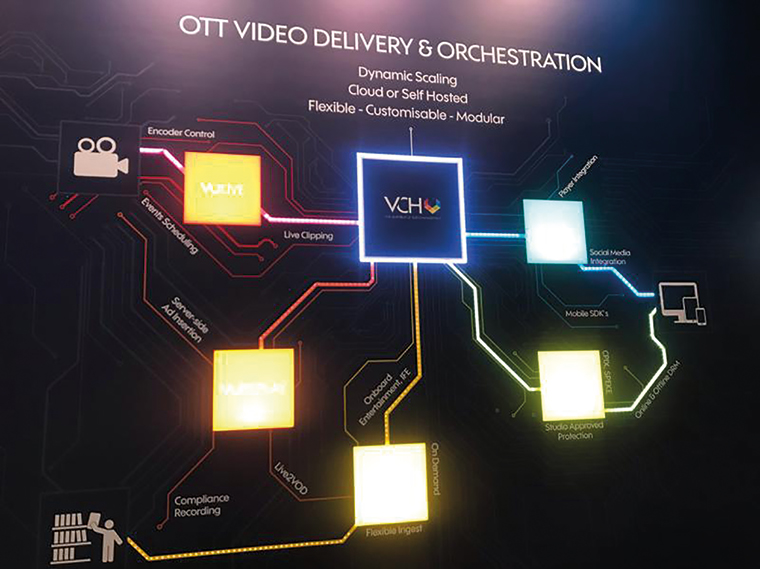
Camilla Young: We were learning as we went along, really. One of my first jobs there was to write a proposal for a tender. I read this tender and I hardly understood any of the words in it. I didn’t know what an encoder was. I didn’t know what a CDN was. So there was a huge learning curve, but the thing was we were all learning together. We did some really cool stuff there.
I enjoyed getting into streaming and managing the team, and we were building our own OVP (online video platform) product, which was a bit ahead of its time. Unfortunately, the company decided it wanted to concentrate on the traditional broadcast side, and I couldn’t see a long-term career there.
James Burt was the CTO at Twofour and is my business partner now. We could see the writing on the wall. After one particularly difficult meeting we said, “Let’s just do it ourselves”.
From that moment to being in our own office, in a little business park, was six weeks. It was crazy. We took a few of Twofour’s clients that they didn’t want and started the business basically with about £300 each, which we used to buy some web hosting and business cards, and some bits and pieces. But we knew nothing about starting a business.
We had a load of chairs, and desks, and office equipment that Twofour gave us and a beautiful little office kitted out in Plymouth, and we sat there on our first day, in March 2012, saying, “Now what?”. We knew we wanted to do web streaming for people. We thought we’d do a lot of lower-end webcasting for events.
FEED: How did the business grow from there?
Camilla Young: We did a few smaller webcasts for clients but our first big break was a project for France Télévisions, and that was to build their premium VOD portal. James had been at an industry event, and he met this guy outside having a cigarette and it turned out he was looking for solutions for France Télévisions. James and I went over to Paris, presented what we thought we could do and got the project, which was £42,000.
FEED: But surely it wasn’t all dumb luck? You had already built up some valuable experience.
Camilla Young: Oh yeah, we obviously had the experience. We knew what we were doing, but we had to make a name for ourselves. The France Télévisions project really springboarded the company, and we made a lot of good contacts.
We’ve grown our business through partners, through building really good relationships with partners. We sell their products and they sell our services. That’s the way that we like to work. Most of our clients are in mainland Europe, and we have some clients in the US, but very few clients in the UK right now.
FEED: Where does the name Vualto come from?
Camilla Young: We had to come up with a name quite quickly. We chose Vualto, because ‘vu’ means ‘to view’ – as in to view video – and ‘alto’ means ‘high’. And there are a lot of clouds with ‘alto’ in their names. It’s really about viewing video in the cloud.
FEED: What is the main thrust of the business now?
Camilla Young: We provide video streaming services, including VOD and live-to-VOD. We’re also doing a lot of digital rights management.
Our first type of client is broadcasters. We work a lot with public sector broadcasters. But our other set of clients – and it’s been really good for us – are government clients. We do all of the streaming for the European Parliament – that’s 20 live channels.
And in the UK, all our clients are government clients. We do all the streaming for the UK parliament. We’ve been very, very busy with Brexit, obviously. We do the National Assembly for Wales as well, and also the GLA (Greater London Authority).
We’ve got these systems suitable for broadcasters, but parliaments and governments are just the same. They’re broadcasters in their own right. Their priority is to get their content out there, so we use the same underlying systems and processes for our government clients that we do for the broadcasters.
FEED: Do these government clients have any specific needs that are different from the broadcasters?
Camilla Young: They do more social media streaming, so for the European Parliament we’ve built systems to allow us to simultaneously stream to their website, their apps and to social media. They’re streaming to around 80 social media channels at once in 24 languages.
“I would like more young people to get into IT, more females. I think that’s really important”
They also want their content to be more readily accessible, so they allow downloads and clipping of their content that obviously broadcasters don’t. So we need to provide that, too.
FEED: What are you seeing coming up in terms of streaming opportunities out there?
Camilla Young: Everyone’s got a streaming infrastructure now. Everybody is delivering multi-format. We’ve seen that become commonplace. What we’re doing now is looking at dynamic scaling, which is where you spin up all your resources only when you need to. Take the European Parliament, for example. They’ve got 20 live channels, but they’re event-based channels. They’re not streaming different meetings or different events, and sometimes they’re not streaming anything at all. So why keep your cloud infrastructure and your service spun up when they’re not needed? One of our big pushes is to provision the infrastructure and streaming service only when they’re actually required, then spinning them back down again, which will save our costs.
People have got the basics. The next stage is making it work a little bit better for people and giving more on the live-to-VOD side. People now understand they can use their live workflow to build their VOD. But now we’re looking at streamlining that to give clients frame-accurate VOD, very fast. So, in the past you could have live-to-VOD, but perhaps you had to wait a bit for the VOD to be produced. We’ve now come up with a way of producing VOD very quickly that is also frame accurate.
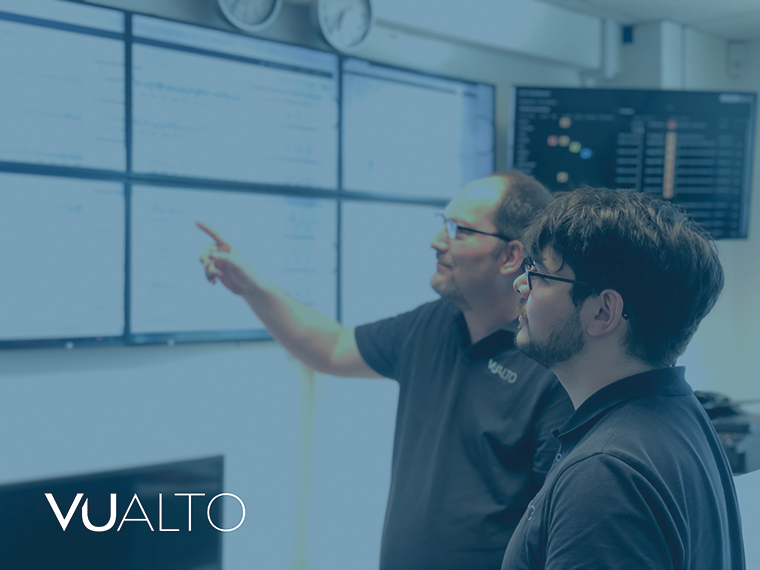
FEED: I assume you do a lot of consulting with clients as well? Especially in government, where people may not be as familiar with all the technical possibilities.
Camilla Young: Ours is a very consultative approach. When you’re building a broadcast system, there are so many different things to consider. You’ve got to consider integrating with legacy systems; how many people are going to be watching; all the caching.
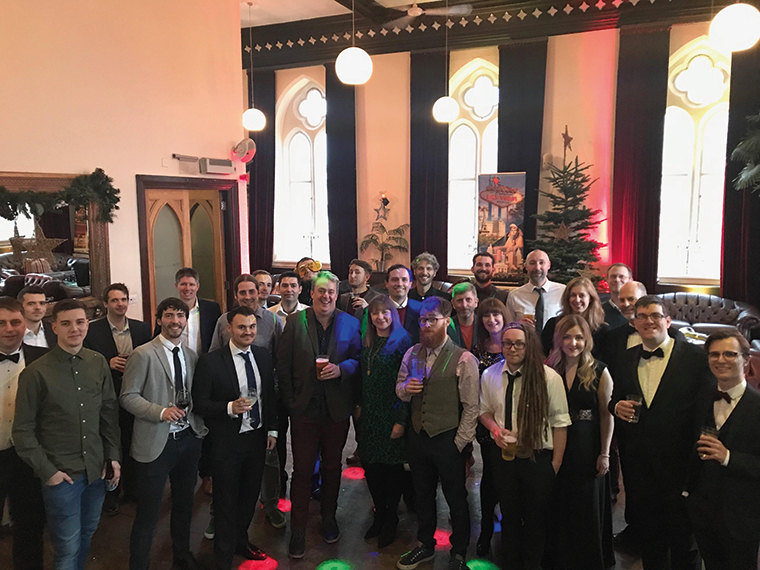
Growing up: Vualto began life seven years ago as two people in a small office in Plymouth, and now boasts a workforce of 42
It is quite a complex thing to get right. So, yes, we tend to work in a very consultative way with clients. We’re quite a ‘techie’ company, we’re not a fluffy marketing company. We don’t have a lot of sales people and it’s a really technical sale. The way we like to operate is just to be really technically competent and prove ourselves like that. Our sale is usually to the technical people in the company, and we do like to have real contact with the technical people at the client’s, so we will be talking developer to developer.
You have to get the awkward IT people alongside, because these are the people that we will be talking to as we support the systems ongoing. (We provide 24/7 ongoing support, as well.)
We’ve got a network operations team here in Plymouth now, so we’ve grown from the two people that started to, I think, we’re just about 42 people now.
FEED: What do you see as the future for the company? And what do you see as the future for the industry?
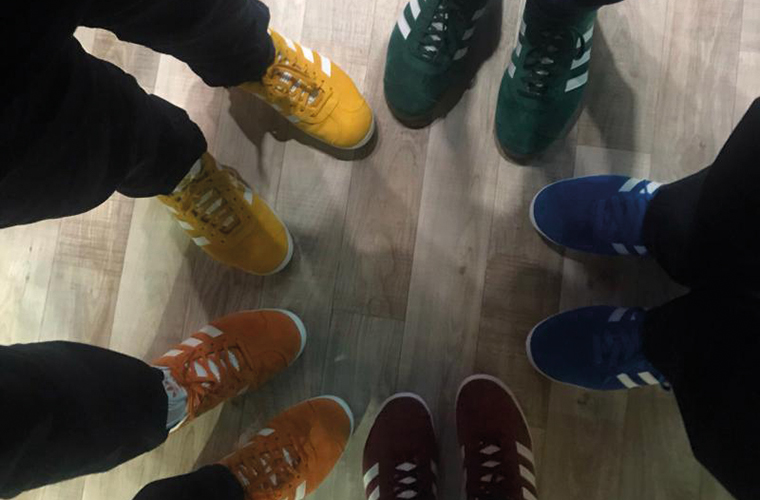
Camilla Young: I don’t know what the future is! I think the future is quite worrying, actually. Brexit is slightly worrying, because we don’t know what’s happening. We have set up a Vualto BV, an entity in the Netherlands to counter that and it wasn’t particularly cheap.
There’s obviously a lot of amalgamation in the market from the big players with Disney and all. But I don’t know what to say to that really, apart from the fact that no one’s watching proper telly, so I think we are in the right business. But where the streaming business is going, I think it could only get bigger.
FEED: Has being a female entrepreneur in the technology industry been especially challenging?
Camilla Young: I don’t think so, but I think it probably would be if you were a shrinking violet. I think you have to be cleverer than some people, and I think you have to be slightly more… not outspoken, but upfront. It’s not really held me back, because I wouldn’t let it hold me back.
But there are underlying things that you notice. You might say something in a meeting that gets ignored and then somebody else says it, who is a male, and it gets picked up. It’s really subtle things. And also the pay – I’m sure that I have been paid less in my jobs than men in the equivalent job. In fact, I know for a fact I have. That’s probably the thing that upsets me the most. Other than that, you just have to prove yourself by being better.
FEED: Do you have any ideas about how equality might be improved in the industry? Or does it just require constant vigilance?
“We’re quite a ‘techie’ company, we’re not a fluffy marketing company”
Camilla Young: I think it’s improving – I think we just need to be equal.
I would like more young people to get into IT, more females. I think that’s really important. We are running an initiative called GIRLCODE, which is a free session teaching code mainly to young females – although it is open to boys. We’re running those sessions both in Plymouth and in Bath, at half terms, in libraries. That’s gone down really, really well.
We’re also doing some mentoring. I’ve just signed up to be a mentor for a student at Plymouth University. I’m hoping that I’ll get a female there. So we’re trying to do our bit, but it is difficult and I think unless it’s changed at primary school level, then I can’t see it improving.
This article first appeared in the December 2019 issue of FEED magazine.
